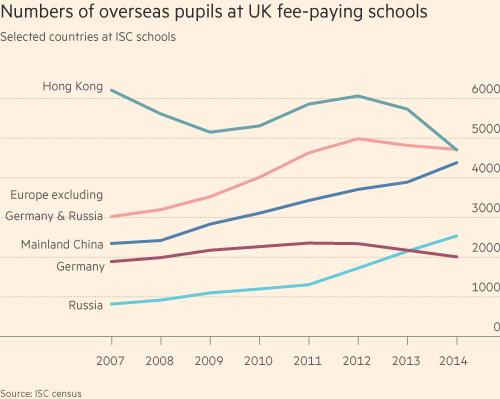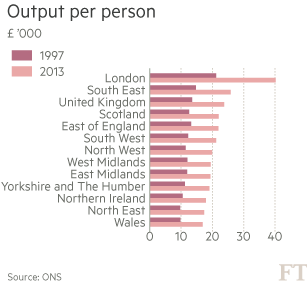Google’s mobile network, the theory of Warren Buffett and the coffee backlash

The daily briefing “FirstFT” from the Financial Times.
Google is launching its own mobile network in the US. The internet group has become increasingly frustrated at the slow pace of innovation at incumbent telecoms companies. That stops it providing new services in established markets, Google says, while putting unconnected users around the world out of reach. (FT)
Users of Google’s network will be able to switch seamlessly between mobile phone and WiFi signals, and between the masts of competing mobile phone networks. (Guardian)
In the news
Market highs Australian stocks dipped from seven-year highs after the central bank disappointed by staying pat on interest rates. But sentiment elsewhere in Asia was broadly positive after the S&P rose to a record high and the Nasdaq ended above the 5000-point level for the first time in 15 years. (FT, WSJ$)
Anthem knew about hacking weakness The US had warned the second-largest US health insurer about weaknesses in its computer security almost two years before it was hacked and information belonging to nearly 80m people was stolen. The insurer then and now has denied government auditors full access to its network to review its cyber defences. (FT)
China’s threatening space plans It is developing space technology aimed at blocking US military communication and destroying its ability to win conflicts, according to a US Congress report. Back on earth, China’s own military elite has been targeted by Xi Jinping’s anti-corruption campaign – 14 senior officers are under investigation for corruption. (Bloomberg, FT)
Greek bailout 3.0 Negotiations have begun for a third bailout package between EUR30bn and EUR50bn, according to Luis de Guindos, the Spanish economy minister. Other European officials, however, have tried to downplay the negotiations. (FT)
Mexican president’s candid admission Enrique Pena Nieto said his country is plagued by“incredulity and distrust” and that his administration must “reconsider where we are headed”. Pena Nieto was feted by investors initially but has since faced a tide of popular disquiet and an increasingly sceptical electorate. (FT)
It’s a big day for
Benjamin Netanyahu The Israeli prime minister addresses the US Congress today and will warn against a nuclear deal with Iran. In his much anticipated and controversial speech, he will say that the deal “could threaten the survival of Israel”. (FT)
SUVs The auto industry is gathered for the Geneva motor show where carmakers will be trying to spark interest in their brands by unveiling new products. This show looks set to be dominated by the must-have car of the 21st century – the sport utility vehicle. (FT)
Food for thought
Putin’s survival strategy No outsider can know if Vladimir Putin ordered the killing of Boris Nemtsov, says Gideon Rachman, but the Russian president undoubtedly created the atmosphere of nationalist paranoia that made his assassination permissible. (FT)
The theory of Warren Buffett Matt Levine argues that his success is due to being really good at one decision point and focusing exclusively on that: entry/exit. (Bloomberg)
As emerging markets have matured, British boarding schools have gone from being the preserve of the wealthy elite in those countries to being an object of aspiration for the middle classes too. Emma Jacobs looks at the appeal of UK boarding schools. (FT)

The thickness of the glass ceiling The New York Times has created an index to measure how unrepresented women are. It shows that among S&P1500 chief executives, for each woman there are four men named John, Robert, William or James. (NYT$)
The Art of Agenting Chris Parris-Lamb, the literary agent who sold The Art of Fielding for $665,000 and had three books on bestseller lists in the autumn, discusses why it is more difficult to sell a book nowadays and why Amazon’s literary publishing arm is a failure. “A book is basically irrational – or fiction is, anyway… Amazon doesn’t seem to be able to get their heads around that.” (Guernica)
The coffee backlash One in three American homes now has a pod-based coffee machine but non-recyclable, non-biodegradable pods have prompted people to question their use of the machines and the sustainability of their coffee habits . The inventor of the ubiquitous K-Cup coffee pod says of his invention, “I feel bad sometimes that I ever did it.” (The Atlantic)
Wealth and diversity has set London apart form the rest of Britain. Janan Ganesh looks at whether inward-looking politics will hurt the openness that the capital thrives on. (FT)
Video of the day
The Labour – Tory battle Birmingham Edgbaston was once a solid Conservative seat but has been held by maverick Labour MP Gisela Stuart since 1997. Kiran Stacey visits to see whether she can fend off the Tories once again in the general election. (FT)
This article is published in collaboration with The Financial Times. Publication does not imply endorsement of views by the World Economic Forum.
To keep up with the Agenda subscribe to our weekly newsletter.
Author: FirstFT is the Financial Times’ editors curated free daily email of the top global stories from the FT and the best of the rest of the web.
Image: People are silhouetted as they pose with laptops in front of a screen projected with a Google logo.
Don't miss any update on this topic
Create a free account and access your personalized content collection with our latest publications and analyses.
License and Republishing
World Economic Forum articles may be republished in accordance with the Creative Commons Attribution-NonCommercial-NoDerivatives 4.0 International Public License, and in accordance with our Terms of Use.
The views expressed in this article are those of the author alone and not the World Economic Forum.
Stay up to date:
United States
The Agenda Weekly
A weekly update of the most important issues driving the global agenda
You can unsubscribe at any time using the link in our emails. For more details, review our privacy policy.
More on Financial and Monetary SystemsSee all
Filipe Beato and Charlie Markham
November 13, 2024









